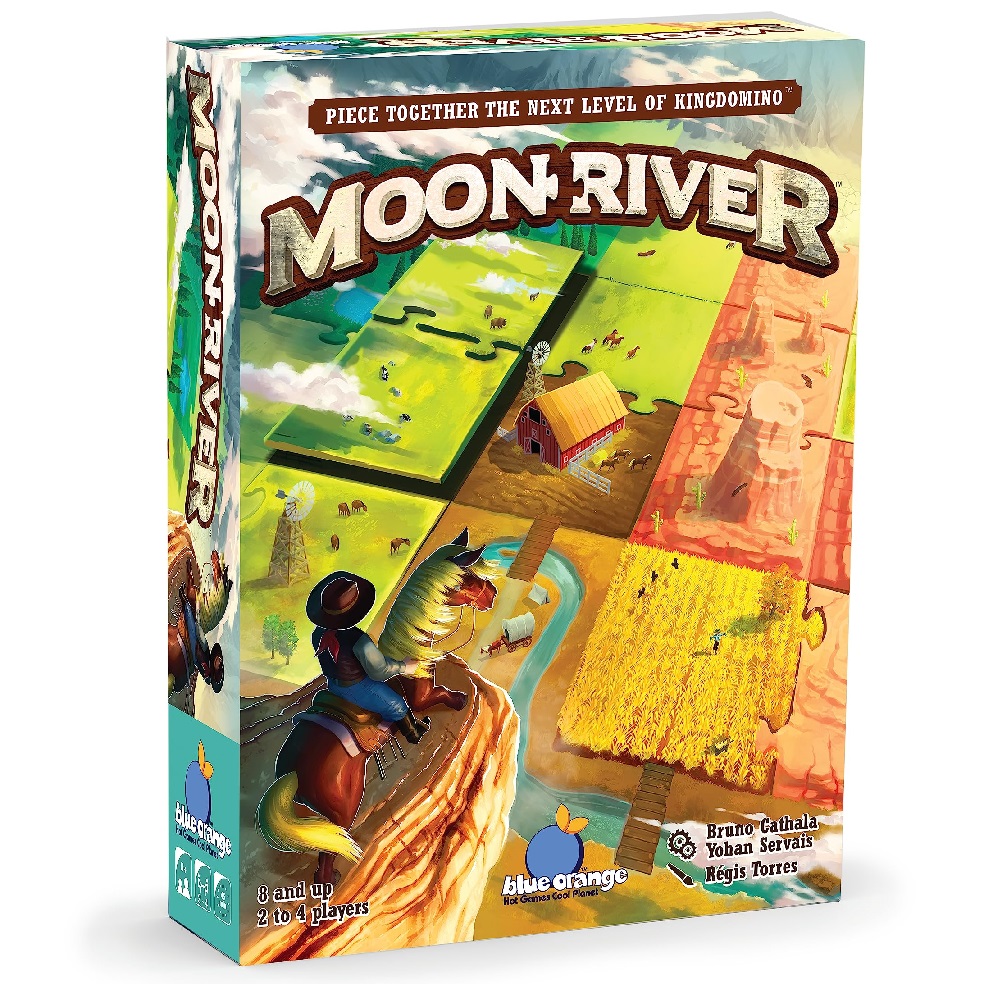The Impact of Cultural Trends on Board Game Themes
Cultural trends have a significant influence on board game themes every year. In 2024, we see this impact more than ever. As society evolves, so do the types of stories and concepts that resonate with people. Current events, movies, television series, and literature can inspire the creation of board games that reflect the interests and experiences of the times.
For instance, if a specific period drama becomes popular on streaming services, it wouldn’t be surprising to find new board games that mimic the setting or storyline of that show. Similarly, if environmentalism or space exploration gains traction in the news, board game themes often follow suit, allowing players to engage with these topics in a playful and interactive manner.
Cultural diversity is also playing a larger role in shaping board game themes. As awareness and celebration of different cultures increase, board games that explore various traditions and histories are becoming popular. These games not only provide entertainment but also serve as tools for education and empathy, enhancing players’ understanding of the world.
Moreover, the rise of social media influences players’ preferences for board game themes. Viral trends can quickly inspire the development of games that capture those phenomena. Whether it’s through memes, challenges, or online community discussions, social media is a fertile ground for fresh themes that resonate with modern players.
In summary, cultural trends significantly impact the board game industry by shaping the themes that emerge. Board game designers must stay attuned to these cultural shifts to create games that are both relevant and engaging to today’s diverse audience.

Emerging Themes in the 2024 Board Game Scene
In 2024, new board game themes have emerged to captivate players’ imaginations. Recognizing the creative pulse of the industry, recent discoveries have shaped a fascinating landscape for board game enthusiasts. Below are some of the most notable themes that have caught the attention of players this year.
- Time Travel Adventure: With advances in storytelling, board games are offering players the chance to navigate through different epochs. This theme allows for exciting gameplay that intertwines historical events with imaginative twists.
- Virtual Realities: Leveraging tech trends, games that involve virtual reality concepts let players immerse in alternative worlds, adding a layer of depth to the board game experience.
- Post-Apocalyptic Survival: This theme remains a strong favorite, with new releases focusing on rebuilding civilization, resource management, and strategic survival.
- Mythology and Lore: Games that delve into ancient myths and legends continue to surface, providing both entertainment and a link to humanity’s cultural roots.
- Cyberpunk Cityscapes: Reflecting the prevalence of cyberpunk in popular media, board games with neon-lit, high-tech dystopias are increasingly popular, offering a blend of technology and rebellion.
Board game creators are tapping into these themes to deliver fresh and riveting experiences. These themes reflect not only the creativity of game designers but also the ever-changing interests of players around the globe. As we see, cultural trends and the collective imagination of society have a strong impact on the emergence of new board game themes.
Classic Themes That Continue to Dominate
While new board game themes emerge each year, certain classic themes remain timeless. These themes have a stronghold on the industry and continue to feature prominently in game design and player preference. Let’s delve into some of these enduring themes that still captivate the hearts of board game enthusiasts:
- Fantasy Worlds: Adventures in enchanted forests and mythical lands continue to draw in players. The allure of magic and medieval quests never fades.
- Space Exploration: The dream of traversing the cosmos and discovering alien civilizations remains a potent source of inspiration. Space-themed board games offer a universe of possibilities.
- Train and Empire Building: Strategies involving the expansion of railroads or empires test players’ planning and resource management skills. These themes are a consistent hit.
- Detective and Mystery: The thrill of solving puzzles and unraveling secrets keeps detective-themed games in the limelight. They are a staple for those who enjoy a cerebral challenge.
- Horror and Gothic: The excitement of facing one’s fears in a safe environment makes horror-themed games enduringly popular, with many titles featuring gothic elements.
These classic themes connect with fundamental human interests such as exploration, adventure, and the unknown. They stand the test of time and continue to be revisited and revitalized by board game creators. While they may be adapted to reflect contemporary styles or mechanics, their core appeal remains unchanged, ensuring their longevity in the world of board games.
Collaborative vs. Competitive: Thematic Shifts
Board games have traditionally pitted players against each other. In 2024, we witness a thematic shift. Collaborative themes are on the rise. This change reflects our social dynamics. People crave teamwork and united efforts in challenges.
Games geared toward cooperation have themes that require players to work together. They aim to complete common goals or solve puzzles. Meanwhile, competitive themes that focus on conflict and dominance still hold sway. Yet, there’s an increased blend of both. Hybrid games merge cooperative and competitive elements. These provide a nuanced gaming experience.
Here’s what we’ve seen shaping up this year in the realm of board game themes:
- Increased Emphasis on Team-Building Themes: Games that require joint strategy and problem-solving are popular. They deepen social connections.
- Strategic Alliances in Competitive Games: Even in rivalry-based themes, alliances form temporarily. They bring a fresh layer of strategy.
- Rise of Semi-Cooperative Games: Games that start cooperatively shift to competition towards the end.
- Narrative-Driven Collaborations: Strong stories often drive cooperative games. They engage players in a shared plotline.
Board game themes are evolving. They reflect our culture’s emphasis on collaboration. Yet, they balance it with the human instinct for competition. This thematic shift mirrors our need for both unity and individual achievement. The 2024 board game scene embraces this through diverse game designs.
Thematic Integration: Enhancing Gameplay Experience
Integrating themes deeply into gameplay has a profound effect on the player experience. In 2024, we’re witnessing board game themes that are not just background settings, but drive the very mechanics of the game. This creates a more immersive and cohesive gaming experience. Here are some key ways how thematic integration is enhancing gameplay:
- Mechanics Reflect Theme: Game mechanics are being tailored to reflect the theme directly. For instance, a board game about historical exploration might include mechanics that simulate the challenges faced by explorers, such as navigation and survival strategies. This alignment ensures a seamless blend between theme and play.
- Narrative Arcs: Many games are incorporating narrative arcs that unfold as players progress. Decisions and outcomes are influenced by the theme, and this can lead to multiple endings based on the players’ actions.
- Aesthetic and Material Integration: The art and components of board games are aligning more closely with their themes. Custom dice, figures, and cards that reflect the thematic elements contribute to a richer experience.
- Sensory Engagement: Soundtracks and haptic feedback are examples of sensory elements being used to deepen the thematic immersion. They help set the mood and bring the theme to life in a tangible way.
- Character Development: In character-driven games, players often have the ability to develop and personalize their characters in ways that are intrinsic to the theme, which adds depth and personal connection to the gameplay.
In conclusion, board games in 2024 are not just using themes as a backdrop but are integrating them throughout every aspect of the game. This shift in design focuses on creating an experience that is both engaging and true to the theme, offering players a deeper connection to the game and its story.
Diversity and Inclusion in Board Game Themes
The board game industry in 2024 is embracing diversity and inclusion like never before. This trend represents a broader cultural push towards recognizing and celebrating various perspectives. Here’s how diversity and inclusion are being reflected in board game themes:
- Culturally Rich Storytelling: Games are including stories from different parts of the world. They offer insights into diverse cultures.
- Representative Characters: Board games feature characters with a variety of backgrounds. This allows players to see themselves in the games they love.
- Educational Aspects: Many games aim to teach players about inclusivity. They do this through game mechanics and storytelling.
- Varied Perspectives: New games are offering different points of view. They challenge players to think beyond their own experiences.
- Accessible Gameplay: Designers are creating games that are more accessible. They consider visual impairments and other physical challenges.
In short, board game themes now celebrate diverse cultures and abilities. They offer a richer, more inclusive gaming experience for everyone. Game designers are not just selling entertainment; they are crafting a platform for learning and connection. The result is a board game landscape that’s as varied as the players it serves.
Tech Advancements and Their Influence on Game Theming
The board game industry is no stranger to the winds of technological change. In fact, it embraces tech advancements to create novel and alluring themes. Here are the ways these advancements shape game theming in 2024:
- Augmented Reality (AR) Integration: AR brings game boards to life with interactive elements. It turns a flat board into an engaging 3D experience, making the gameplay more exciting.
- Digital-Physical Hybrids: Board games now often include app-based components. These bridge the gap between digital and physical, offering a unique interactive experience.
- Smart Components: Games come with pieces that connect to the internet. These pieces track progress, offer hints, or change the game dynamically.
- Voice-Activated Gameplay: Voice recognition tech allows for hands-free play. Players use voice commands to control the game, adding a futuristic feel.
- Personalization Through AI: Artificial Intelligence tailors game challenges to individual players. This makes the experience unique for each person, adapting the game as they play.
Overall, tech advancements are revolutionizing board game themes. They make games more immersive, interactive, and personalized. As we look to the future, the fusion of technology and traditional board game elements promises even more exciting developments. Game theming in 2024 succeeds in harnessing these technologies to enhance and redefine the way we play and interact with board games.
Environmental and Educational Themes in Modern Board Games
The world of board gaming is taking on critical real-world issues with a fresh twist. The trending board game themes of 2024 embrace both environmental awareness and educational content. Let’s explore how these themes are becoming integrated into the fabric of modern board games:
- Environmental Stewardship: Games focused on sustainability and conservation teach players about eco-friendliness. They simulate real-world environmental challenges, like climate change or habitat restoration.
- Educational Value: Many new games aim to educate. They cover topics like history, science, and geography, enriching players’ knowledge as they play.
- Real-World Problem Solving: Board games often challenge players to solve problems that mirror actual global issues. This approach makes learning about complex subjects engaging and interactive.
- Cultural Awareness: Games with educational themes frequently include aspects of cultural awareness. They encourage players to appreciate global diversity through gameplay.
- Family-Friendly Learning: Educational games are no longer just for the classroom. They’re designed for families to learn together during game night.
Incorporating these themes reflects a shift in player interests and the board game industry’s dedication to social responsibility. As creators align board game themes with education and environmental consciousness, they offer more than just entertainment — they become tools for awareness and change. The result is a selection of games that resonate with players’ desire to learn, grow, and contribute to a better world.


